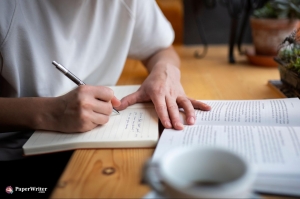In today's rapidly changing world, raising environmentally conscious children isn't just a nice-to-have—it's a necessity. The habits we instil in early childhood often become the values children carry into adulthood. That's why nurseries and preschools across the country are embracing eco-friendly practices and teaching little ones how to care for the planet from the very beginning.
Creating little green thinkers starts with small, meaningful changes in nursery settings. From hands-on nature exploration to mindful recycling, early childhood educators are finding creative ways to help children connect with the environment and understand their role in protecting it.
Why Eco-Education Matters in Early Years
The early years are a critical period for building awareness and shaping attitudes. Young children are naturally curious and observant—qualities that make them especially receptive to environmental learning. They notice when a piece of rubbish is on the ground or when a bird visits the garden. When guided by nurturing adults, these observations become opportunities for teaching responsibility, empathy, and care.
Eco-education isn't about overwhelming children with complex issues like climate change. Instead, it's about fostering simple, age-appropriate habits: turning off taps, reusing materials, planting seeds, and respecting animals. These small acts lay the foundation for lifelong sustainability thinking.
Green Practices in the Classroom
Many nurseries have already taken inspiring steps to green their spaces and routines:
-
Recycling stations for sorting paper, plastic, and food waste
-
Composting bins for snack leftovers and garden waste
-
Nature walks and bug hunts to encourage curiosity and appreciation
-
Gardening projects where children grow herbs, vegetables, and flowers
-
Art from junk projects that promote creativity using recycled materials
At a leading pre school in westbury, these eco-habits are part of daily routines. Children participate in watering plants, feeding worms in the compost bin, and learning about the lifecycle of a seed. Not only does this foster responsibility, but it also builds excitement and wonder around the natural world.
Teaching Through Play and Storytelling
Storytime and imaginative play are powerful tools for introducing eco-friendly ideas. Books that focus on nature, animals, and environmental themes help children develop emotional connections with the earth. Role-playing as ‘planet protectors' or ‘recycling heroes' empowers children and reinforces the idea that their actions matter.
Songs about growing trees, saving water, or picking up litter also stick with children, turning lessons into memorable experiences. Many nurseries incorporate eco-themed weeks or days—like Earth Day or World Water Day—to focus learning and involve families in the message.
Partnering with Families for a Greener Future
Eco-education doesn't stop at the nursery door. Nurseries that actively involve families in sustainability efforts create a ripple effect. Newsletters with eco-tips, second-hand toy swaps, and parent-led gardening clubs are all great ways to bring the green message home.
At the best preschool in surrey, staff work hand-in-hand with parents to reduce waste, share planet-friendly habits, and model sustainable behaviour. Children take pride in reminding their families to recycle or switch off lights—turning learning into real-world action.
Conclusion: Planting the Seeds of Sustainability
When nurseries prioritise sustainability, they do more than just reduce waste—they help shape a generation of environmentally responsible individuals. By weaving eco-friendly habits into daily routines, learning experiences, and play, children begin to see themselves as stewards of the earth.
The goal isn't perfection—it's awareness, action, and a sense of responsibility nurtured through love, routine, and creativity. These little green thinkers, with their muddy boots and tiny watering cans, may one day lead the way to a healthier, more sustainable planet.
Because when it comes to protecting our world, there's no such thing as starting too young.






